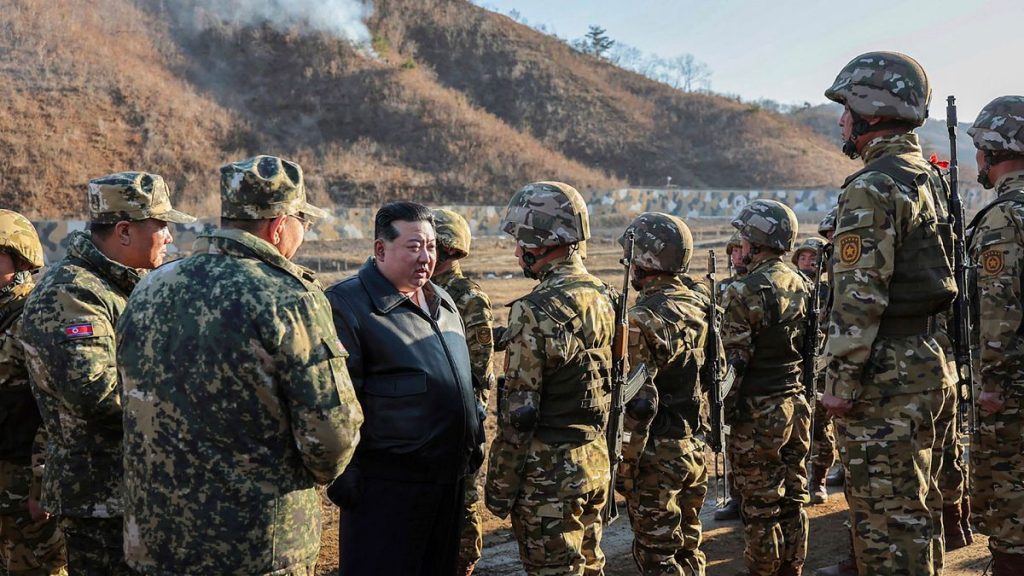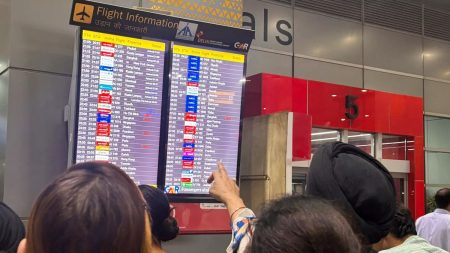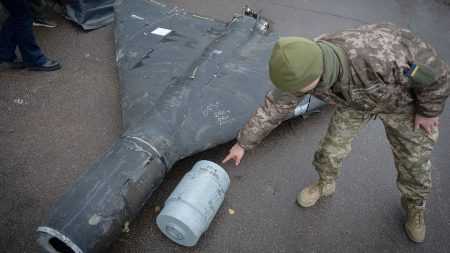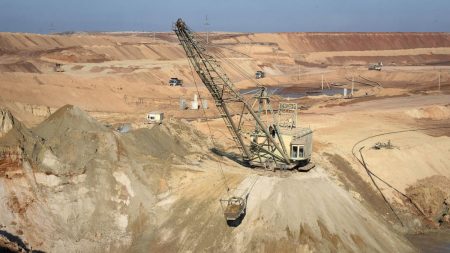The capture of two North Korean soldiers fighting alongside Russian forces in Ukraine’s Kursk region has unveiled a complex geopolitical entanglement, raising questions about prisoner exchanges, asylum possibilities, and the broader implications of North Korea’s involvement in the conflict. Ukrainian President Volodymyr Zelenskyy has proposed returning the captured soldiers to North Korea in a prisoner swap for Ukrainians held by Russia, while also acknowledging the potential for alternative arrangements if the soldiers are unwilling to return. This offer comes amidst reports, including a government-released video, suggesting that at least one of the captured soldiers may prefer to remain in Ukraine. South Korea’s National Intelligence Service (NIS), after questioning the soldiers alongside Ukrainian authorities, confirmed that neither soldier has expressed a desire to seek asylum in South Korea. However, the NIS has indicated its willingness to engage in discussions with Ukraine should the soldiers’ intentions change. This nuanced situation highlights the delicate balance between international law, inter-Korean relations, and the humanitarian considerations surrounding the soldiers’ fate.
The involvement of North Korean soldiers in the Ukraine conflict marks Pyongyang’s most significant military engagement on foreign soil since the Korean War (1950-1953), and carries potential ramifications for regional stability. The NIS estimates that approximately 300 North Korean soldiers have died and 2,700 have been injured while fighting in Ukraine. These casualties underscore the challenges faced by North Korean troops, who are reportedly struggling to adapt to modern battlefield technologies such as drones and grappling with the rudimentary tactics employed by Russian commanders. Recovered memos from deceased North Korean soldiers reveal orders to commit suicide rather than be captured, painting a grim picture of the conditions under which these soldiers are operating. One incident even describes a soldier shouting “General Kim Jong-un” before attempting self-immolation with a grenade to avoid being taken prisoner. This incident further emphasizes the indoctrination and loyalty instilled within North Korean soldiers.
The deployment of North Korean troops to Ukraine raises concerns about the potential for North Korea to gain valuable military experience and access to advanced Russian technology, which could ultimately bolster its own military capabilities, including its nuclear program. While North Korea’s primary motivation for participating in the conflict likely stems from economic needs, the potential for military and technological advancements represents a significant concern for regional security. The NIS briefing to South Korean lawmakers also highlighted the difficulties faced by North Korean soldiers in adapting to the modern battlefield. Their lack of familiarity with advanced weaponry and tactics, coupled with the reportedly subpar leadership of Russian commanders, has contributed to significant casualties. Furthermore, the terrain in the Kursk region, significantly different from North Korea’s mountainous landscape, presents an added challenge for the deployed troops.
The capture of North Korean soldiers also sheds light on the dire economic situation within North Korea, which compels soldiers to engage in farming or construction work to support the struggling economy. This economic hardship likely plays a significant role in North Korea’s decision to send troops to Ukraine, potentially in exchange for much-needed resources or financial aid from Russia. The soldiers’ lack of preparedness for modern warfare, as evidenced by recovered memos instructing them to commit suicide rather than be captured, further underscores the desperation of their situation. The combination of economic hardship, ideological indoctrination, and unfamiliar combat conditions creates a volatile mix for these North Korean soldiers.
The implications of North Korea’s involvement in the Ukraine conflict extend beyond the immediate battlefield. The potential transfer of advanced military technology or combat experience from Russia to North Korea could significantly enhance Pyongyang’s military capabilities, posing a heightened threat to regional stability. South Korea, in particular, is wary of the potential long-term consequences of this collaboration, as it could directly impact its own security. The international community is also closely monitoring this development, given the potential for escalating tensions on the Korean Peninsula and beyond. The capture of these soldiers underscores the complexities of the ongoing conflict and its far-reaching consequences.
The unfolding situation involving captured North Korean soldiers in Ukraine highlights a complex interplay of geopolitical factors, humanitarian concerns, and the potential for unintended consequences. The possibility of a prisoner exchange, the soldiers’ potential desire for asylum, and the broader ramifications of North Korea’s involvement in the conflict all contribute to a multifaceted and evolving scenario. The international community must carefully navigate these complexities to ensure a just resolution for the captured soldiers while also addressing the broader security implications of North Korea’s participation in the Ukraine war. The situation demands a delicate balance between upholding international law, addressing humanitarian concerns, and mitigating the potential for escalating regional tensions.










